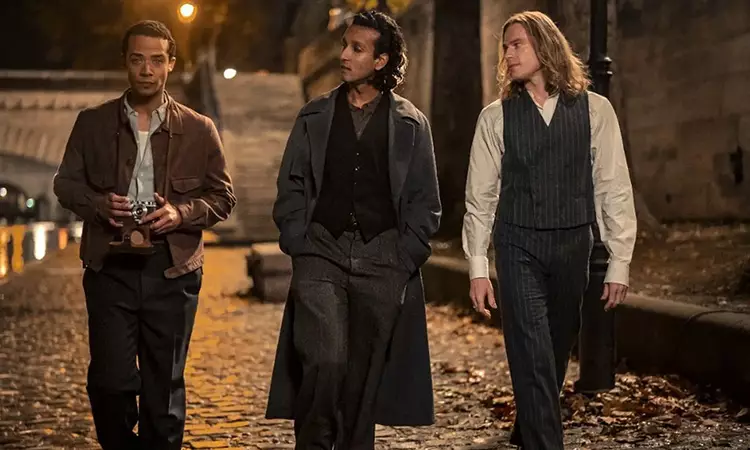The adaptation of literary classics into screen narratives has long been a contentious topic among fans and critics alike. Few works face this scrutiny with as much anticipation as Anne Rice’s literary gem, “Interview with the Vampire.” The TV series, particularly with its recently released Season Two, has proven to be an elaborate reimagining that transcends mere adaptation. Instead, it offers a vivid experience that captures the essence of Rice’s gothic universe while weaving contemporary relevance throughout its story.
Adaptations often grapple with the challenge of staying true to an established universe while adequately addressing modern sensibilities. The narrative continues with the tormented vampire Louis de Pointe du Lac, portrayed by Jacob Anderson, as he embarks on a harrowing journey through post-WWII Europe alongside the child vampire Claudia, played by Bailey Bass. Unlike its predecessor, Season Two broadens the scope of the narrative, diving into the implications of war and the quest for belonging in a world irrevocably torn apart.
The decision to relocate much of the action to Paris introduces a rich backdrop replete with cultural and historical significance. This Parisian setting comes alive as Louis and Claudia encounter a darkly charismatic vampire coven, creating an atmosphere steeped in theatricality and tension. The character of Armand, now brought to life by Assad Zaman, serves as a pivotal figure, challenging the protagonists’ understanding of camaraderie and loyalty. His coven embodies a world that is at once mesmerizing and treacherous, presenting an idealistic allure that captivates and ultimately ensnares both Louis and Claudia.
What sets this season apart is its willingness to delve into the profound emotional landscapes of its characters. Anderson’s portrayal of Louis remains poignantly grounded, as he navigates not only his vampiric nature but also the guilt and trauma associated with his eternal existence. His character arc is graphically illustrated through a tapestry of philosophical reflections on morality and identity. As Louis grapples with his diminishing sense of self amidst the chaos surrounding him, viewers witness a nuanced exploration of what it means to be trapped in one’s own existence.
In stark contrast stands Sam Reid’s Lestat, who becomes a formidable antagonist, reflecting the duality of charm and menace. Lestat’s motivations deepen in this season, embodying a haunting blend of desire and domination. This duality creates captivating tension between him and Louis. Their tumultuous relationship serves as a lens to examine the darker aspects of love and control, showcasing how Lestat’s charismatic allure often carries devastating emotional consequences for those entangled in his orbit.
Meanwhile, Bailey Bass’s Claudia emerges as a key pillar in the narrative, evolving from a once naive character into a more complex figure. As she grapples with the inherent pain of her stunted growth, Bass infuses Claudia with a richly layered performance that balances fiery defiance with profound loneliness. Claudia’s journey poignantly highlights the isolation innate to her eternal youth while addressing themes of agency and purpose within the confines of enduring life as a child forever.
Season Two takes significant strides to explore relevant societal themes, including race, identity, and the dynamics of power within personal relationships. The narrative doesn’t shy away from Louis’s racial identity, offering a contemporary lens on race that resonates without overshadowing Rice’s original vision. This layering adds complexity to his journey, making his struggles feel deeply relevant to today’s discussions around identity and self-definition.
Furthermore, the show doesn’t indulge in romanticizing immortality; rather, it bares the psychological toll of eternal existence. Through introspective narratives and an unflinching examination of loneliness, Season Two invites audiences to contemplate not just the allure of vampires, but the inherent horror of isolation that follows eternally. In a world where connections are ephemeral, the show raises critical questions about the cost of unending life and love.
“Interview with the Vampire” Season Two expands upon the solid foundation laid by its predecessor, delivering an intricate narrative steeped in emotional gravitas and dark elegance. With remarkable performances and thoughtful explorations of identity and morality, this season stands out as a passionate celebration of Rice’s complex universe, proof that adaptations can indeed capture the essence of their source material while evolving in profound and meaningful ways. As fans eagerly anticipate what lies ahead, it is clear that the journey through the world of vampires continues to captivate and challenge our perceptions of love, power, and the eternal struggles that define us all.

